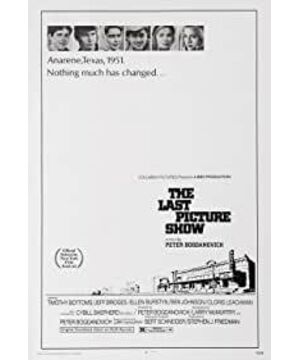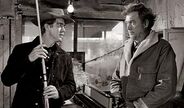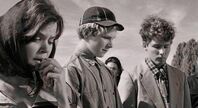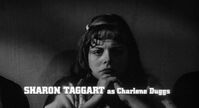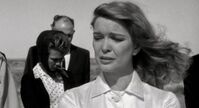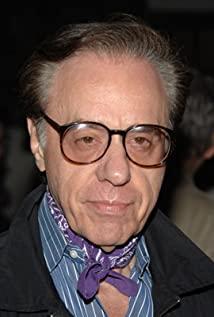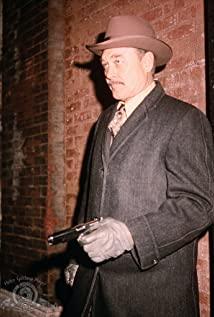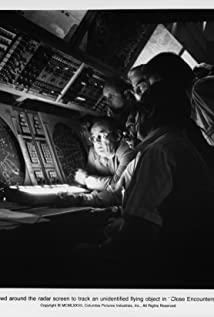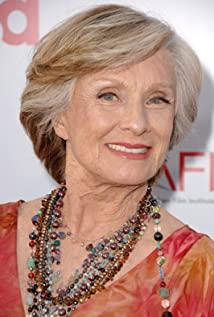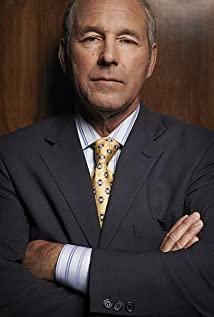1. Girls who have an open sexual concept and are willing to enter the car with boys but contradictly insist The Christian-style chastity morality shows the broken state of the original ethics. Whether it is supporting modernization or sticking to traditional morality, such a deformed social environment is worth considering by both parties.
2. The residents of the town have not had time to fully enjoy the culture of movies and cafes. The development of technology and materials has quickly brought them into the TV era. They have not yet established a formal cultural concept. Naturally, they have become For TV proponents, leaving the original film and its culture behind, the reference to the actual frustration of cinematic art in this episode (dumb show and failed movie theater) is clear.
3. The residents of the small towns have not gained enough vision to make choices for their own life, so they blindly followed the animalistic scribbles and ended their lives. The heavy traditional atmosphere is touching and touching. It's a pity: the short-lived fairy tale color is refreshing, but the rest of the truth makes one can't help but feel unfair to these residents.
In fact, what interests me is not the very real 1950s American issues in the film, but the most interesting thing: how does the film make such a natural reference to off-screen? It is difficult to answer this question in terms of scenes and editing. I think the reason why this film has more realism than "American Graffiti" and "Rebel Without a Cause" is because of the timing in the plot form. As Bordwell said and has been proved in cognitive psychology, when people are faced with interpreting works of art, they can't help dismantling and speculating on the elements of works of art according to their own experience and skill level. In the movie, this psychology, coupled with the human love for the 'story' soul, becomes the dramatic pleasure the audience gets in the plot, that is, whether the audience guesses it or not, he can get substitutes from the ups and downs of the plot. Emotional aesthetic pleasure, which includes the moral pleasure of the wicked being punished, the substitution happiness of a lover getting married, the surprise of killing Cheng Yaojin halfway, and so on. It is precisely because the audience has formed such a fixed aesthetic feeling that the sudden appearance of off-screen real references in many movies makes people uncomfortable. This is because the movie/novel/drama has used its own plot to create a Realistic but higher-than-real plot small world, the audience will naturally think that the story and time in this small world rely on internal rather than external clues to solve, as Chekov said, "a gun will ring", the audience will Will focus on each clue of the plot screen cuts and so on and hope the story will solve itself. Thus, such a model makes it difficult for the film to be truly "literal", where reality refers or becomes the internal/external meaning of the overall story (Assembly makes us respect veterans, Jurassic World makes us respect nature), or Turned into humor in a short episode (Shaun the Zombie teasing the rock band, Allen the Invincible [I decided to call him later] teasing NYU).
It can be seen that this film obviously did not actively cater to the audience's expectation of the form, but adopted a "real time" type of plot mode. What the audience saw was not a closed loop of the plot where they buried their burdens and trembled by themselves. It is an unpredictable collective history based on a real audiovisual environment. First of all, in the story of this film, events such as the protagonist's trip to Mexico, Sam's death, Ruth's romance with her husband's students, etc. are not included. (Of course, the film format makes the characters appear in one environment, which is indeed a big foreshadowing, but it is not within the scope of this article, and it will fall into the debate of film philosophy. This article mainly does Narrative analysis), the rationality of these plots is completely recognized by the audience by virtue of the audio-visual environment and the performance of the actors. For the audience, the characters are like strangers in real life doing what they want to do Choice, not meeting their expectations in a story world. In fact, we can see that even for real stories, the audience will still get the aesthetic pleasure of the plot, but it may come more from the extensional meaning (meaning) rather than the reference meaning (story), which makes this film to convey The task of viewpoints is easier to accomplish, which I'll get to later. Secondly, there is no obvious transition between the scenes of the large unit of this film (ball game to Christmas, graduation ceremony to work and Vietnam War), and it is carried out step by step in a self-sufficient way like the detailed plots. And on the other hand, the events in it happened according to the real historical sequence (TV, Vietnam War), which makes the story of this film more credible and immersive, and the boundary between the screen and the real is more blurred. (Is this a true story or a script?).
It is under the combined effect of these two points that the film's narration of the American problems in the 1950s after World War II is integrated into every plot and scene of the whole film, so that the 'text' can be 'carried out'. It is not so much a film. A melodrama that reflects the living conditions of American teenagers/people in the West after World War II. It is better to say that this is a true record of a typical example of American cultural transformation. The audience sees as if they were themselves twenty years ago, rejecting culture and the American dream. Gradually blurred, and it is about to enter the abyss of war (North Korea in the movie, the Middle East in reality), so the best thing is that what happened in the movie is not only a real memory, but also an exquisite By borrowing the ancient metaphors from the present, it is conceivable that to make such a real representation of reality and to convey a profound point of view, the creators choose such a film that does not stick to the plot, does not deliberately create conflicts, and restores the truth with audio-visual and rhythm. The form is clearly appropriate and ultimately serves its purpose.
In general, there are many places in this film that remind me of Jia Zhangke. Although he did not deliberately pursue the Bazin-style truth in the images, he also successfully used real time to make a profound interpretation of the passing American culture. This one Skills, right, this skill is very worth learning, ah, very worth learning, originally, the randomness of life is more exciting than movies, you say temple is not temple
View more about The Last Picture Show reviews


